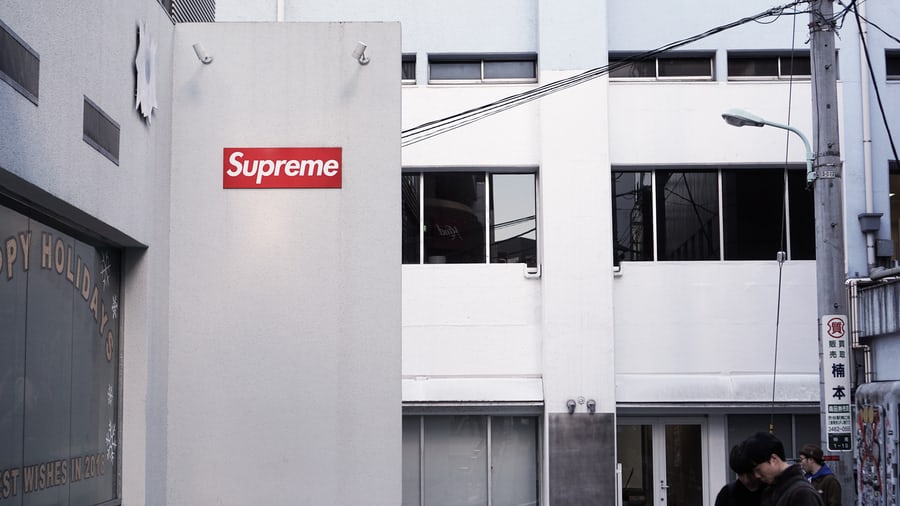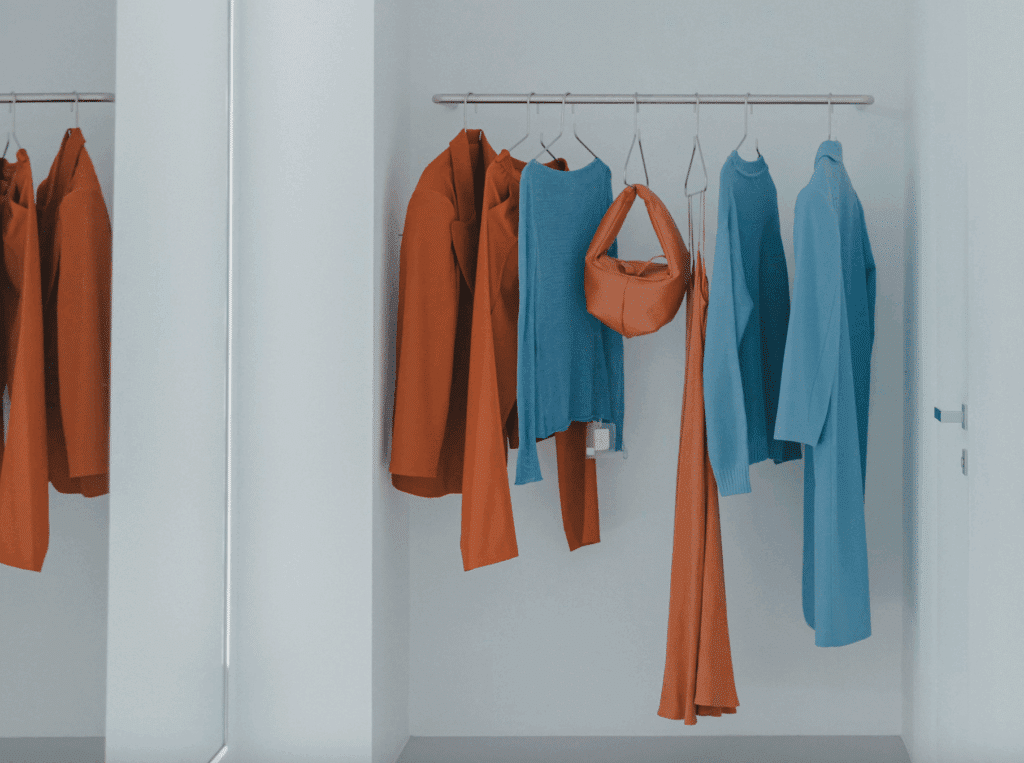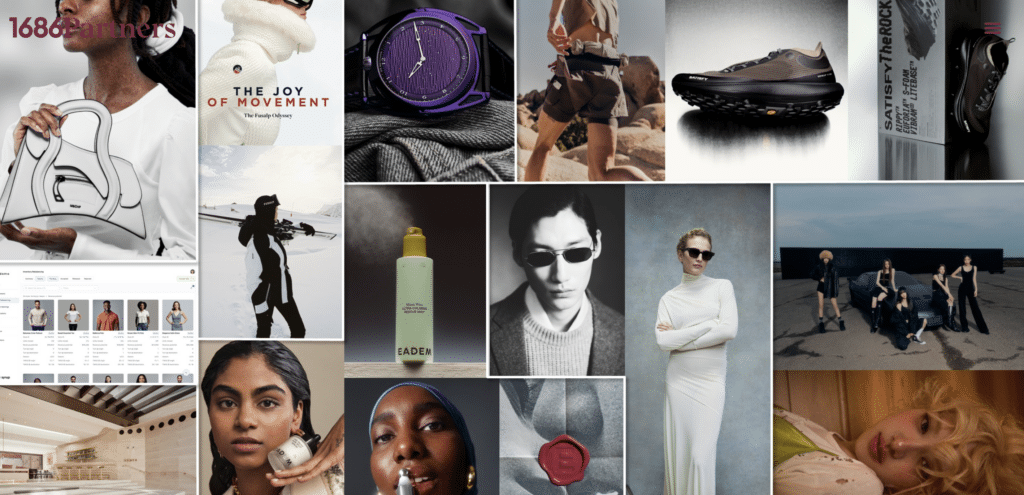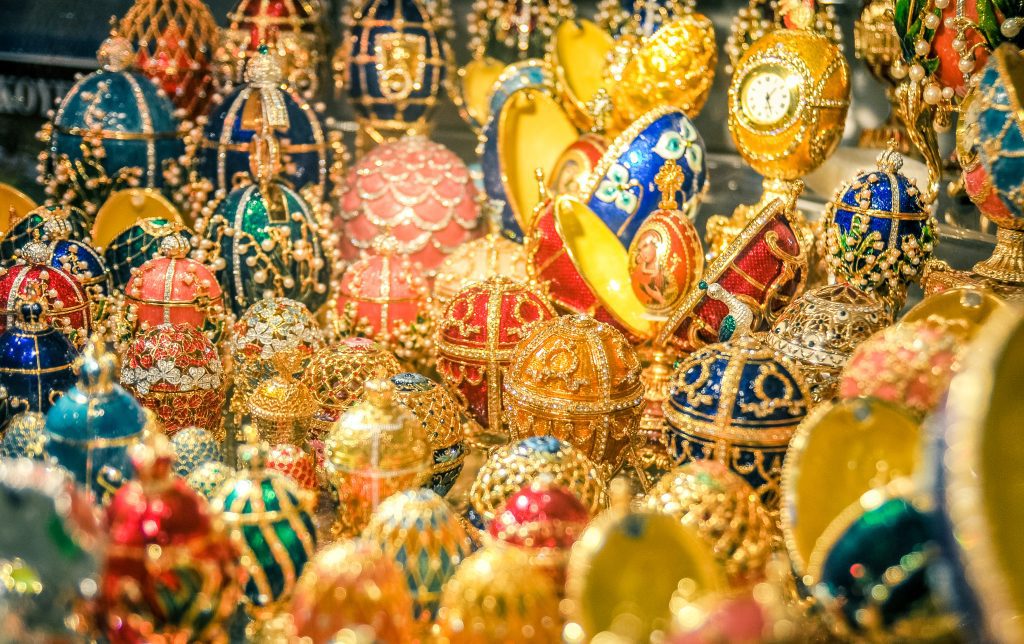Supreme is collaborating with Samsung. That is what the Korean cell phone giant declared this week at the Chinese launch for its Galaxy A8s. At Monday’s highly-anticipated event in Beijing, Samsung unveiled mid-priced mobile products equipped with the company’s most advanced technologies. It also announced that is will partner with Supreme, with “Samsung China’s marketing head Feng En inviting executives from the popular fashion brand on stage to talk about the marketing collaboration” against a backdrop that featured the two brands’ logos side by side. The collaboration comes ahead of what will be a roll out of Supreme stores in China beginning in 2019.
The problem? Supreme is not collaborating with Samsung. It also is not expanding into China. Instead, another company, one that has notoriously co-opted the Supreme name and branding, is.
Following confusion on Monday as to its involvement with Samsung, a representative for Supreme set the record straight, saying, “Supreme is not working with Samsung, opening a flagship location in Beijing or participating in a Mercedes-Benz runway show. These claims are blatantly false and propagated by a counterfeit organization.”
Samsung China’s digital marketing manager, Leo Lau, followed up by issuing a clarification on Chinese social media platform Weibo, stating, “The brand we are collaborating with is Supreme Italia, not Supreme US. Supreme U.S. doesn’t have the authorization to sell and market in China. Whereas the Italian brand got the [Asia-Pacific] (except Japan) product retail and marketing authorization.”
The collaboration is the latest development in a heated feud between Supreme, the brand that James Jebbia founded in New York City in 1994, and Supreme Italia, the brand launched in 2015 by International Brand Firm (“IBF”), a British holding company that maintains – and licenses to other companies – registrations in the “Supreme” trademark for use on garments and accessories in an array of countries across the globe.
To the untrained eye, the wares put forth by Jebbia’s Supreme and Supreme Italia are identical. While Jebbia’s brand puts forth seasonal collections that consist of a range of ready-to-wear and accessories in addition to regularly releasing new products as part of its famed “drops,” it is well-known for its more run-of-the-mill garments, such as t-shirts screen-printed with its red box logo inside of which is the word “Supreme” in a Futura Heavy Oblique font.
It is precisely these products that have enabled Supreme Italia to make its name. Thanks to Barletta, Italy-based Trade Direct, the company that has licensed the Supreme trademark from IBF and thus, maintains the right to manufacture garment and accessories using the Supreme trademark in Italy, Jebbia’s Supreme has been met with competition in the form of low-cost tees and other wares bearing its most noteworthy indicia (and its most valuable asset), its box logo.
By way of its lookalike wares, its careful marketing (Trade Direct boasts that it is the “licensee of the most important brands in the world of streetwear,” including, it would appear, Supreme), and its overt use of Supreme-specific branding, Trade Direct has “won over less-informed fans of the streetwear brand and convinced retailers and shops that they were purchasing originals,” according to Italian IP attorney Silvia Grazioli of Bunion SpA.
In reality, despite the striking similarities, there is no absolutely affiliation between Jebbia’s 22-year old Supreme and Trade Direct’s unauthorized Supreme Italia endeavor. And in fact, legal sources close to Supreme have told TFL that IBF and Trade Direct are in the wrong, and that the media’s widespread use of the term “legal fakes” – which Ms. Grazioli says is used to refer to “a legal copy of a brand, where ‘legal’ indicates that the fake brand is a trademark registered in a country where the original mark has yet to be launched” – is “misleading and technically wrong” since Trade Direct and IBF’s use of the Supreme trademark on garments “is simply illegal in Italy.”
There is more to this mess than Trade Direct winning over eager customers outside of Supreme’s intentionally small-scale reach (Supreme maintains a total of 11 wholly-owned and operated brick-and-mortar shops in the world – one in Manhattan, Brooklyn, Los Angeles, London, Paris, and six in cities in Japan, and no third-party stockists), though. There are legal rights at play. You see, in 2015, when Jebbia’s Supreme was seemingly content in focusing on its existing operations in the U.S. and a select few other major international cities, IBF – under the watch of an Italian-born man in his 40’s named Michele Di Pierro – set up shop in London, and set out to amass trademark registrations all over the world.
So, in 2015, IBF started to file trademark applications and receive registrations for the Supreme name and box logo in a wide range of country thanks to a technicality in trademark law. As of now, a representative for IBF says the company has rights in the Supreme name/logo in a whopping “54 countries.”
Unlike in the U.S., where trademark rights are enjoyed by the party that is the first to actually use a specific trademark, in China, for instance, (and an array of other countries), rights are gained by the party that is the first to file a trademark application and only then in order to maintain that registration, actually use the trademark within 5 years.
The lack of a use requirement gives trademark-seeking entities that are not actually using the mark at issue in the jurisdiction at issue a significant advantage. It means that even though IBF began using the Supreme trademark decades later than the original Supreme first put its box logo on its door on Lafayette Street in Manhattan and on the garments and accessories inside its store, it was able to obtain a registrations because it filed a trademark application in San Marino, for instance, one of the world’s smallest countries, before Chapter 4.
With Di Pierro’s clever trademark tactics in mind, Jebbia’s Supreme has been forced to take on IBF and Trade Direct in court (mostly in Italy and San Marino) in an attempt to claim intellectual property that Supreme claims is rightfully its own. In such cases, Chapter 4 Corp. has routinely cited counterfeiting, trademark infringement, and unfair competition, among other claims, and the results have been mixed.
The Business Specialized Division of the Court of Milan has repeatedly sided with Supreme, stating that Trade Direct’s use of “an “identical sign [as Supreme] on identical products” gives rise to counterfeiting and “unlawful activity of parasitic unfair competition.” Following a preliminary blow before the European Union Intellectual Property Office this spring, however, lower courts in Italy have moved to annul their orders that had required the seizure of Trade Direct’s Supreme-branded products.
If the ongoing lawsuits between Supreme, and IBF and Trade Direct are any indication, the Samsung x Supreme Italia collab will likely give rise to a legal fight to the death between the parties in China in the not too distant future … one that will likely make use of the enhanced intellectual property protections in China, particularly provisions established to protect non-native rights holders, such as Supreme, against bad faith trademark filers.
In the meantime, for an in-depth look at the ongoing legal battles between Supreme and IBF/Trade Direct, you can find that here.
UPDATED (December 14, 2018): According to a statement from Samsung, “Recently, Samsung Electronics announced at the launch of the Galaxy A8s that it will cooperate with Supreme Italia in the Chinese market. We are currently re-evaluating this cooperation, and we deeply regret the inconvenience caused.”














